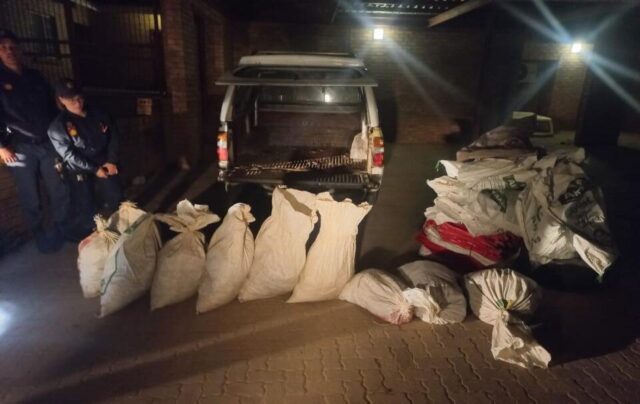The Springbok SAPS Stock Theft and Endangered Species unit arrested two men who were driving a vehicle loaded with bags containing endangered plants on the R382 road between Steinkopf and Port Nolloth.
THE SPRINGBOK SAPS Stock Theft and Endangered Species unit (Stesu) arrested two men who were driving a vehicle loaded with bags containing conophytum bilobum plants on the R382 road between Steinkopf and Port Nolloth.
Northern Cape police spokesperson Lieutenant-Colonel Sergio Kock said that the two suspects, aged 37 and 40, were arrested at a vehicle checkpoint (VCP) for possession of endangered plants.
Kock said that on October 4, 2023, at about 12am, SAPS members conducted a VCP on the R382 road between Steinkopf and Port Nolloth.
“A white Isuzu double-cab bakkie was stopped and searched, and police confiscated 10 50kg bags containing 4,485 conophytum bilobum plants,” said Kock.
He added that the two male suspects were arrested and charged under the Northern Cape Nature Conservation Act 9/2009, sections 50 and 51, for illegal possession of endangered plants.
The police also confiscated the Isuzu bakkie as it was utilised in the commission of an alleged crime.
Kock also confirmed that the two suspects will appear in the Springbok Magistrate’s Court soon.
Meanwhile, the Namakwa district commissioner, Brigader Schalk Andrews, commended the SAPS members for “the vigilance and professional conduct that led to the outstanding arrests and confiscations”.
The South African National Biodiversity Institute (Sanbi) Red List of South African Plants reported that conophytum pageae is the most widespread species from the genus conophytum. It grows in southern Namibia and Namaqualand.
Sanbi maintained that the conophytum genus is in high demand in the international horticultural trade. One known population makes this species highly vulnerable to population loss and it is threatened with over-collection.
Between 5,000 and 10,000 specimens have been removed from the habitat since March 2019, with rates and volumes of harvesting increasing constantly.








